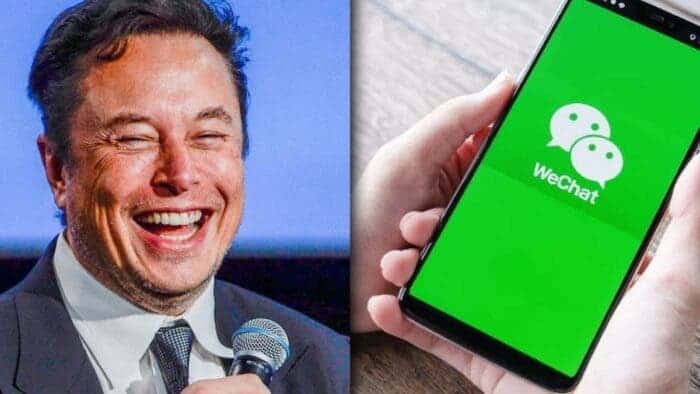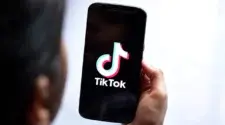While many of us are still complaining about the X character replacing the lovely bird, Elon Musk is working on something you probably haven’t experienced yet. According to the latest company statements, X could be the beginning of Twitter transformation to “The Everything App”, like WeChat in China.
Since he overtook Twitter, the richest man in the world has faced many problems, most of which he caused himself. In a recent move, he rebranded this social network as ‘X,’ causing a user backlash and a significant decline in brand value. The bigger problem really is the debt of 13 billion dollars, which Twitter (now X) has accumulated in the meantime. It’s worth mentioning that Musk also laid off about 80% of Twitter staff. This may have freed up some funds, but at the same time affected the platform quality and user experience.
However, Elon apparently has way greater plans for Twitter than just being a social network focused on microblogging. It has now become obvious that Musk wants to turn Twitter into a much wider platform. This magic is called The Everything App, according to the latest announcement by new-appointed Twitter CEO Linda Yaccarino.
Twitter transformation to the Everything App
Musk’s model for this making an Everything App is the Chinese platform WeChat. You may have heard of this application, and if so, you probably think of it as a messaging service. If you live out of China and have someone who travels there, WeChat is the only platform to communicate directly, at least in the way you are used to at home via WhatsApp or similar apps.
What exactly is WeChat?
However, WeChat is much more than that. If you live in China, it’s a platform that you simply cannot imagine your digital life without. And consequently, it affects your physical life as well.

WeChat is not just a messaging app or social media. Through this platform, you can receive and send money, and pay bills, both for utilities and shopping. You can also use it in cafes and restaurants, and buy tickets for public transport. Such as bus, train, subway, or even airplane. You can also subscribe to another service through it, in the way you use Google in the West.
If you somehow lose access to WeChat in China, you could experience the so-called digital death. The reason for this is that WeChat, owned by Tencent company, has 1.2 billion registered users who use it on a daily basis. All of them are in some way connected to each other through it. Although there are alternatives to this platform, it is unlikely that you will be able to achieve your digital goals without WeChat. All in all, WeChat in China is a simply must-have.
Obstacles Musk Faces in Twitter Transformation to The Everything App
Elon Musk has long expressed his fascination with the WeChat phenomenon and has been looking for ways to push something similar in the West. Tencent itself in the West hasn’t even tried to expand the WeChat platform to the level at which it works in China. The simple reason is that it is specific to the Chinese market and adapted to the Chinese script. Expanding to the West would be challenging in many ways. There are financial challenges due to large amounts of money which should be invested without any guarantee of paying off. Tencent would probably also encounter sanctions, as it’s the case with many other Chinese companies in US and EU.
After long research, Musk apparently recognized such potential in Twitter. The microblogging social media could be used as the foundation for his vision of The Everything App. With a user base of about half a billion, Twitter could certainly embark on the kind of transformation that Musk has planned. Whether it will be successful could depend on many factors.
Apart from the current problems Twitter is facing, it should be noted that the first obstacle to creating any kind of WeChat clone in the West is a highly demanding job. Primarily due to cultural differences, which affect users’ habits.
Companies like Google and Apple could confront this project in some ways
Another major obstacle to Musk’s idea of Twitter transformation is companies such as Google and Apple, which have long owned their own mobile payment systems. There is also Meta with FaceBook, Instagram, and WhatsApp, with a billion user base. If they feel X platform is a threat to their incomes, they could simply ban the X app from his platforms. On the other hand, it shouldn’t be too complicated for Apple Pay and Google Wallet to be integrated into X. The only question here is whether it will be in Google’s and Apple’s interest or not.
The X could also face the slow process of reaching business deals with banks in the West. We could witness how long it takes for each bank to integrate into Google Pay and Apple Pay. Moreover, the problem of digital payment integration is much more present, and less developed in the US than in the EU.
Is a WeChat clone in the West even possible?
Also, the comparison of WeChat and any other platform in the West could be meaningless in the first place. Namely, WeChat has been the ruler of the digital space in China in terms of messaging, social media, mobile banking, and shopping for 10 years. At the time when it started, there was nothing like it in the market anywhere in the world. So, we can say that Tencent actually invented the Everything App.
The habits that Chinese citizens acquired through the use of WeChat could not necessarily be reflected in the West. It’s due to the factors already mentioned above. If the project fails, nobody can predict how much money will be lost.
However, Musk is still convinced enough and financially capable to bring Twitter’s transformation to “The Everything App” to some functional level. How it will be accepted by the users themselves remains to be seen. There is certainly room for such a concept. The only question is who will be the first to make it the right way.





